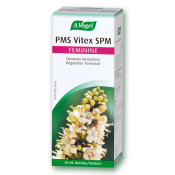Having irregular periods can be unsettling especially when one wants to start a family and is trying to conceive. It can come from hormonal imbalances to underlying causes, and should be evaluated by your doctor or health practitioner.
Irregular periods
Your menstrual cycle is divided into two phases: follicular and luteal. When you count the days of your cycle, day one is the day you start your menstrual bleed. Generally day 1 to 14, is termed the follicular phase. From there, at mid cycle, is when ovulation occurs. This is when the egg is released and is the time when a woman is most fertile. This second half of the cycle is the luteal phase.
The full menstrual cycle is counted from the first day of your last period to the start of your next period. Your period is considered irregular if it is longer than 38 days or if it varies in duration.
A lot of the time, this can be normal and natural to experience. Certain biological changes can cause women to have irregular periods. Such as;
- Pregnancy. This is the most frequent reason for a stop in the period cycle.
- Breastfeeding. Nursing can cease the period cycle from occurring depending on the frequency of the breastfeeding sessions. While nursing, you may have one period one month and not any for many months after. This can happen if you are exclusively breastfeeding your baby.
- Perimenopause. This is the transition phase for women which usually occurs in their forties. On the way to menopause but not quite there yet. The drop in estrogen levels affects the frequency and length of a woman's periods during this time.
Besides the natural and inoffensive reasons you may be experiencing irregular periods, there may be other causes for it. If you feel like any one or more of these may be causing your irregular periods, it is important to check with your doctor and / or health practitioner. Here are some;
- Stress. It has been shown to disrupt the menstrual cycle by temporarily interfering with the part of the brain that controls the hormones that are responsible for regulating the menstrual cycle.
- Hormonal birth control. They can be linked to irregular bleeding, same with intrauterine devices.
- Thyroid issues. 44% of participants in a 2015 study who experienced irregularities also had thyroid disorders. Someone with an underactive thyroid (hypothyroidism) can have longer, heavier periods and increased cramping. They may experience other symptoms such as fatigue, weight gain and sensitivity to cold. On the other hand, if a woman has higher levels of thyroid hormones (hyperthyroidism), their periods tend to be lighter and shorter.
- Uterine fibroids. Fibroids develop in the wall of the uterus and are basically muscular tumors. Most of the time fibroids are noncancerous and can range in size from very small to as big as a grapefruit. Their presence can cause irregular, heavy and painful periods. They also come with pelvic pain, lower back pain, pain in the legs and pain during sex.
- Polycystic ovaries syndrome (PCOS). Heavy and irregular periods, weight gain, excess facial hair, infertility and male pattern baldness are symptoms of PCOS.
- Being overweight. Obesity has been shown to affect regularity of periods. Being overweight impacts insulin and hormone levels, which can interfere with the menstrual cycle. Gaining weight rapidly is also a factor in irregular periods. That and irregular periods are oftentimes signs of PCOS.
- Extreme weight loss and eating disorders. For ovulation to occur, the body needs certain hormones. If you're not eating enough calories, this can interfere with the body's ability to produce these hormones. Rapid weight loss can definitely put a stop to regular periods.
- Excess of intense exercise. Exercise is important to stay healthy and live a well-balanced life. It can also help maintain regular periods. But like everything, moderation and listening to your body's limits is key. Excessive exercise has been shown to interfere with the hormones responsible for menstruation. Athletes performing at high levels often experience the stop of their period as the body doesn't have enough fat to produce estrogen - needed for menstruation to occur.
What can be done to stabilize periods?
Depending on what is affecting you personally, there are different ways to help bring back regular periods.
Of course eating healthy is important to maintain a healthy weight and also to avoid disrupting hormones. Foods filled with chemicals and preservatives should be tossed aside. Choosing fresh and organic fruits, vegetables, nuts and seeds is imperative.
Physical activity in moderation such as walking, stretching, yoga, pilates and hiking are all good ways to connect to the body, maintain a healthy weight and feel better overall.
If you're too stressed out, you can learn ways to calm the mind, bring awareness to the moment and to your breath. Simply taking 8 deep breaths upon waking up and doing the same thing before going to sleep can help you bring calmness and less stress into your life.
Certain herbal remedies and teas are wonderful too. I personally love red raspberry tea. Red raspberry leaves contain an alkaloid called fragarine which tones the uterus and helps it to contract smoothly in turn easing cramps and reducing heavier bleeding. The leaves are also an easy way to acquire calcium which regulates hormones, particularly those released towards your period.
Another natural remedy that works well for period regularity is PMS Vitex. This is made from the Vitex agnus-castus plant. This plant is frequently harvested as an herbal remedy for a variety of ailments. Its most popular use is to relieve PMS, menopause symptoms and infertility issues. Do not use if pregnant, breast-feeding or on hormonal contraceptives including the pill, implant, injection or the Mirena coil.
References:
https://dradatya.com/treating-pms-and-irregular-periods-naturally-with-naturopathic-medicine/
https://www.medicalnewstoday.com /articles/322643#period-tracking
https://www.yourperiod.ca/fr/abnormal-pain-and-menstrual-bleeding/irregular-or-absent-periods/
https://jcdr.net/article_fulltext.asp?issn=0973-709x&year=2015&volume=9&issue=3&page=QC01&issn=0973-709x&id=5611
https://link.springer.com/article/10.1007/s13224-014-0650-0





